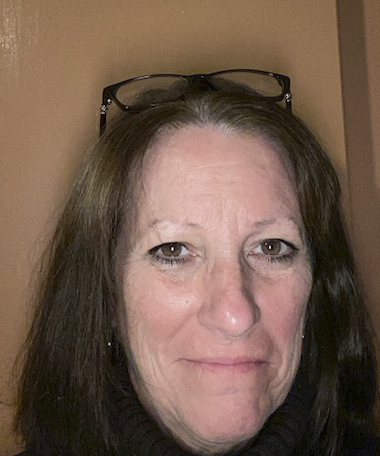DEBORAH TREFTS – STAFF WRITER

When it comes to hospice and palliative care, Chautauqua County has come a long way since the 1980s and even the 2010s. That’s a boon for year-round, seasonal and week-long residents and visitors.
Long before COVID-19, families and friends experienced the angst of not knowing where to turn for compassionate, knowledgeable and skilled support and care when loved ones were dying or seriously ill at Chautauqua. The pandemic has further complicated and exacerbated this anxiety and grief.
“People say, ‘What’s wrong with me that I can’t get through this?’ ” said Shauna Anderson, president and CEO of Chautauqua Hospice and Palliative Care. “I say, ‘Nothing.’ People are coming from all over. This is a hard time for everyone. Our bereavement coordinator says that the outlier is more the norm as we get through the pandemic.”
At 4:30 p.m. on Monday, July 26 in the tent on the front lawn of the Chautauqua Women’s Club, Anderson will give a talk titled “40 Years of Caring for Chautauqua.”
In addition to being a registered nurse, she is certified in gerontological nursing, in hospice and palliative care, and in animal-assisted activities and interventions.
Regarding the latter certification, from the University of Denver, CHPC provides pet care support for patients who are pet owners, and Anderson has been able to have 45 patients in wheelchairs in the pasture of the alpaca farm where she and her husband live.
“Hospice and palliative care are about quality of life,” she said. “It’s not necessarily a place. We’ve never had one (for patients to stay in). We’ve gone to homes, and when people are homeless, to cars. It’s a philosophy, not a place.”
Nevertheless, CHPC’s five-bed Star Hospice House is on target to open in late 2021 despite the challenges of COVID-19.
Particularly vulnerable patients no longer need to be transferred to other communities, some far away. Instead, there will be room each year for over 200 individuals who have no family support or whose care needs are too complex to be managed at home.
“We let the community know of our need,” Anderson said. “It’s been a dream of the county and Hospice for 30 years. Someone reached out to the woman in the house next door (to our Lakewood office) and now we have a campus. … We will probably have to add beds either here or in the north county.”
According to Anderson, credit is largely due to the efforts of Bert and Mary Rappole – Chautauquans who have a long history with hospice and have been serving as the co-chairs of the CHPC’s Our House Campaign. In this capacity, they have been raising the funding necessary for constructing, running and endowing a community residence staffed 24/7.
Bert Rappole opened his surgical care practice in Jamestown well before hospice was available, and welcomed the advent of a certified county hospice agency in 1991. Mary served as its on-call registered nurse early on, and more recently as a hospice and palliative care nurse practitioner.
At the end of her talk, the Rappoles will join her in answering questions.
For nearly 20 years — since before Chautauqua Hospice Information & Referral Service evolved into CHPC — Anderson has been a key member of its staff.
The day after graduating from The College at Brockport, State University of New York (SUNY Brockport) in 1977 with her bachelor of science in nursing, she and a friend headed for Southern California.
“I worked on spinal cord injury and discovered that I really loved home health care,” Anderson said. “I did that on weekends to pay for the adoption of my daughter. Spinal cord injury was fascinating because it was technical. People are on ventilators and people are just out of surgery.”
After 10 years, she returned to Western New York — to Rochester and Jamestown — where she continued serving as a nurse. In 1995, she received her master of science in community health nursing from D’Youville College in Buffalo.
“One of the interesting things about nursing is that there are so many areas of expertise you can go into,” Anderson said. “There are lots of opportunities.”
Eight years later, Anderson became a registered nurse case manager for Hospice Chautauqua County. Within two years she was promoted to manager of clinical services, then director of clinical services, and finally vice president of clinical services. She held this position for 10 years prior to being named president and CEO of CHPC.
“Palliative care is a fairly new concept for hospice,” Anderson said. “… Hospice is very regulated now; there are pages and pages of rules. We all have to play by the same rules. But for palliative care, there (are) just two paragraphs of regulations. … It’s a different concept, because there are so many different types.”
Because Chautauqua Institution’s nine-week season is unique, she said she will also talk about travel hospice and palliative care.
“Most health regulations aren’t people friendly,” Anderson said. “But hospice encourages us to be; to share care with other hospices. It’s a well-kept secret. Even if you just come for a week, you can have hospice or palliative care.”
Even more important for her, however, will be persuading everyone who attends her Monday afternoon talk to engage in “open conversations about what we want out of life and about self-directed closure of our life.” To ensure that we get what we want at the end of our life — which will in fact occur sooner or later — Anderson urges us all to put advance directives in place.




